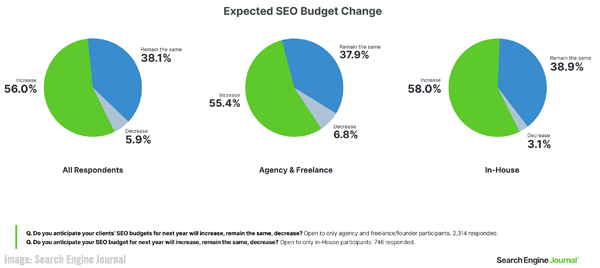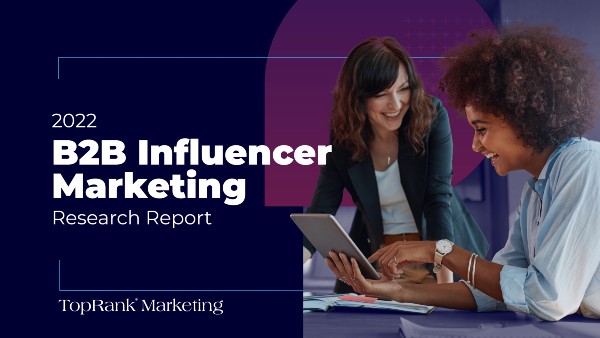How can B2B marketers make the best use of marketing budgets in the face of economic challenges?
When it comes to online marketing, search engine optimization (SEO) and pay-per-click (PPC) advertising weigh in as two of the most important strategies in the playbook, with their combined one-two punch acting as the kind of force multiplier that B2B brands are increasingly seeking.
SEO is the fundamental fine-tuning process that helps websites ensure that their relevant content is findable by search engines, and can help a brand’s information rank higher in the search engine results pages (SERPs), while PPC is the longstanding advertising method where companies pay for each click their ads receive.
When these two powerful yet decidedly different tactics are successfully combined, SEO and PPC form a cohesive tool for any business looking to make a bigger impact on its target audience.
As with many areas of marketing and professional life, bringing together two techniques that are in some ways opposite sides of the same coin can be easier said than done.
Thankfully, through the use of practical best practices B2B marketers can successfully walk that fine line.
SEO Budgets Rising In 2023
In 2023 SEO marketing budgets are uniformly expected to rise, with 55.4 percent of SEO professionals in agency or freelance roles planning to increase spending, while an even higher 58 percent from in-house teams expect to spend more on SEO in 2023, according to Search Engine Journal’s recently-released State Of SEO: Performance, Salaries & Budgets For 2023 report.

With SEO and PPC working harmoniously together, businesses can reach more potential customers with less effort than they would by relying solely on only one. By smartly leveraging both SEO and PPC tactics simultaneously, B2B marketers can drive more qualified leads to your organization’s website — both more efficiently and quickly than using just one of these strategies.
Better yet, SEO and PPC are by nature highly complementary to one another. A smart SEO plan helps drive higher organic search results, while well-implemented PPC allows the targeting of specific keywords and phrases with ads that appear at the top of SERPs. PPC allows businesses to get their message in front of their target audience faster and more effectively than when utilizing SEO alone.
“Whatever their intent, optimize a seamless path for your searcher, and using both SEO and PPC to connect with them in their decision-making moments can result in more revenue for your organization,” Lemuel Park, co-founder and CTO of BrightEdge has noted.
“Whatever their intent, optimize a seamless path for your searcher, and using both SEO and PPC to connect with them in their decision-making moments can result in more revenue for your organization.” — Lemuel Park of @BrightEdge Share on XWhen it comes specifically to the world of B2B, can marketers best combine SEO and PPC?
To make the most out of SEO and PPC working together, let’s jump right in with five best practices.
1 — Set Measurable Goals
Before beginning work on any SEO or PPC campaign, it’s especially important to set measurable goals that align with your overall marketing objectives.
This will ensure that you’ll be able to track performance and measure those return on investment (ROI) elements that are most important to your organization.
2 — Utilize SEO To Inform PPC
SEO goes a long way in helping to understand which keywords and phrases are most important for your business, which will in turn help you so that you know the best areas to focus your PPC ads.
3 — Leverage Re-Marketing
Re-marketing is a powerful way to reach people who have already taken that first step and visited your website or interacted with your brand in some other way — whether through social channels or via other digital touch-points.
This will allow you to deliver content that’s more relevant, and to achieve higher conversion rates from SEO and PPC campaigns that are smartly fused in a cohesive fashion.
4 — Optimize Landing Pages
To get the most out of the fusion of SEO and PPC, it’s also important to take the time to make sure that the relevant landing pages for both strategies are fully optimized for conversions.
How is this done?
By making sure they load quickly, have mobile-friendly designs, and feature clear calls to action.
5 — Monitor performance
It’s true that SEO and PPC campaigns can be complex — with many pieces in play at any one time — so it’s also important to monitor the performance of both strategies over time to make certain they are each working as expected. This will help your organization identify those areas that need improvement, and allow you to make adjustments to your SEO and PPC strategies accordingly.
“When you’re reviewing your SEO performance, think about ways to take optimization to the next level and create even better experiences for customers. Make content findable but also credible,” our Lee Odden suggested in “Trust and the Search for Answers: How Influence Optimizes SEO Performance.”
“When you’re reviewing your SEO performance, think about ways to take optimization to the next level and create even better experiences for customers. Make content findable but also credible.” — Lee Odden @LeeOdden Share on XAmplify B2B Marketing With The Fusion Of SEO & PPC
As you think about your 2023 B2B marketing strategy and how to get the most bang for your buck, keep in mind what we’ve covered here, and that SEO and PPC advertising are two powerful tools when fused together. By combining SEO with PPC tactics and following best practices including setting measurable goals, leveraging re-marketing, optimizing landing pages, and monitoring performance, businesses in 2023 can reach more potential customers faster than ever before.
When it comes to B2B content, crafting award-winning B2B marketing that elevates, gives voice to talent, and humanizes with authenticity takes considerable time and effort, which is why more brands are choosing to work with a top digital marketing agency such as TopRank Marketing. Reach out to learn how we can help, as we’ve done for over 20 years for businesses ranging from LinkedIn, Dell and 3M to Adobe, Oracle, monday.com and many others.




